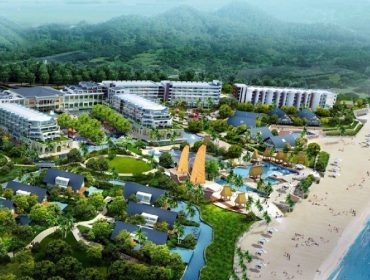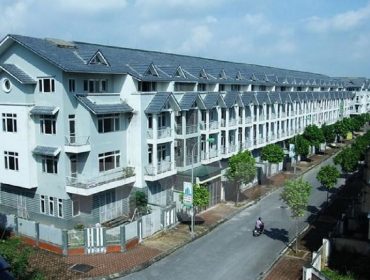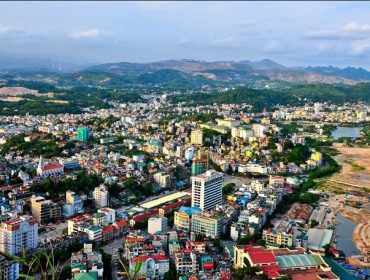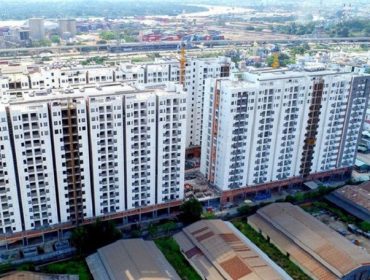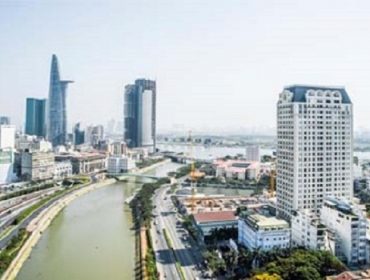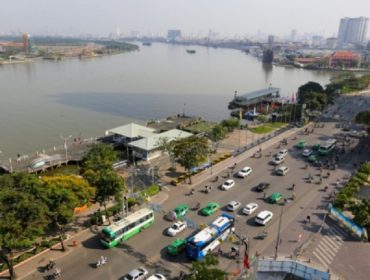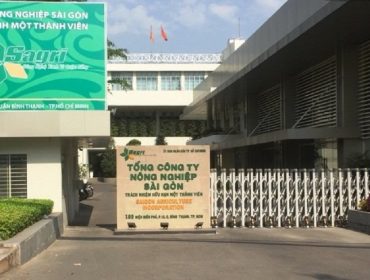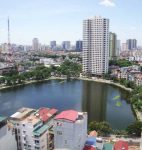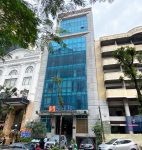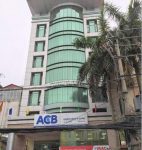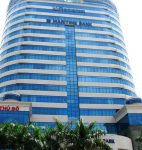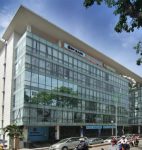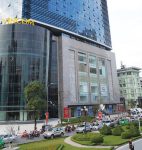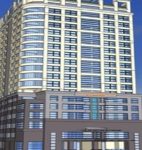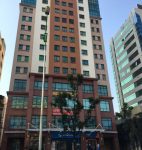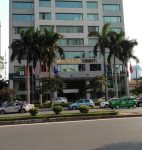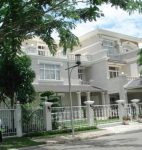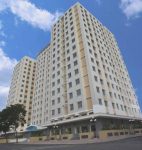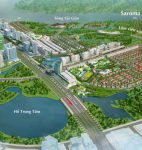Hotline:
(+84) 898 898 688Traveling Around Vietnam, Visiting The ” Oldest” Schools
In this article, Vietnam Real Estate will go through the “oldest” schools in Vietnam, throughout the North and South for readers to have more information about the history and development of the school.
Ho Chi Minh City area
Saigon University (108 years old)
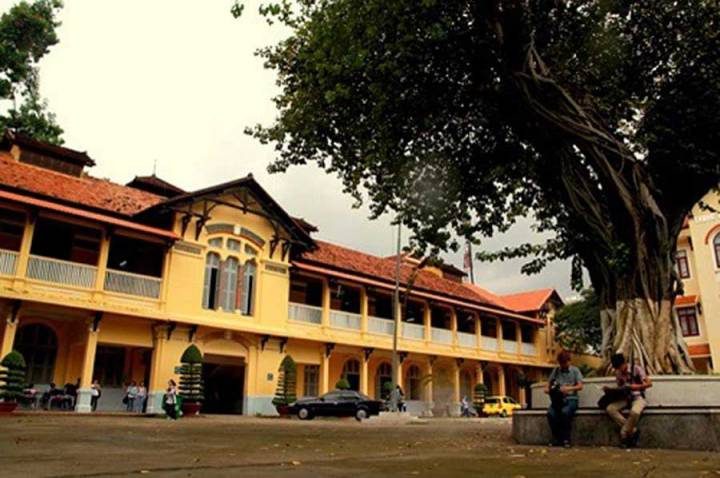
Saigon University
Saigon University, the precursor of the College of Pedagogy of Ho Chi Minh City is considered the school with beautiful architecture and old style in the system of universities in the city. The school has both ancient French and interwoven Chinese architecture built in 1908, called the School of Charity (French-Chinese High School).
Currently, Saigon University organizes training for 30 majors at the university level, 24 majors at the college level, and four majors in the fields of economy, technology, culture and society, politics – arts, and pedagogy.
Read more: Vietnam Real Estate News
Marie Curie High School (96 years old)
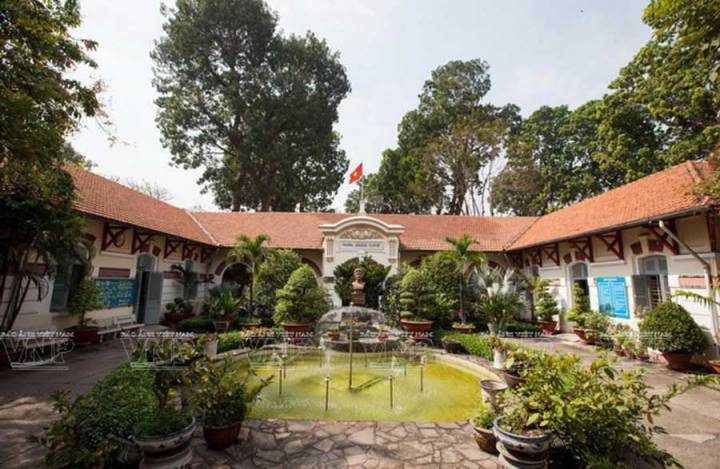

Marie Curie High School
Marie Curie High School is named after Marie Curie scientist. This is also the only school to retain the original name given by the French colonialists. During the Republican period, Marie Curie was a private school for girls. In 1997, the school was transformed into semi-public high schools for both men and women. Previously, Marie Curie was the largest high school in Vietnam with over 5000 students per year. In 2007, the school was renamed to a public upper secondary school.
In November every year, Marie Curie High School hosts a night of traditional music with many famous singers for two purposes: to create a playground for students and to raise money for charitable activities.
Le Quy Don High School (139 years old)
Le Quy Don High School (Ward 6, District 3, Ho Chi Minh City) was built in 1874 and completed in 1877. Initially, the school was named ‘Chasseloup – Laubat’ (Collège Chasseloup – Laubat) to serve the need to train the children of the French colonialists in Saigon. The National Curriculum, from elementary to baccalaureate (French program).
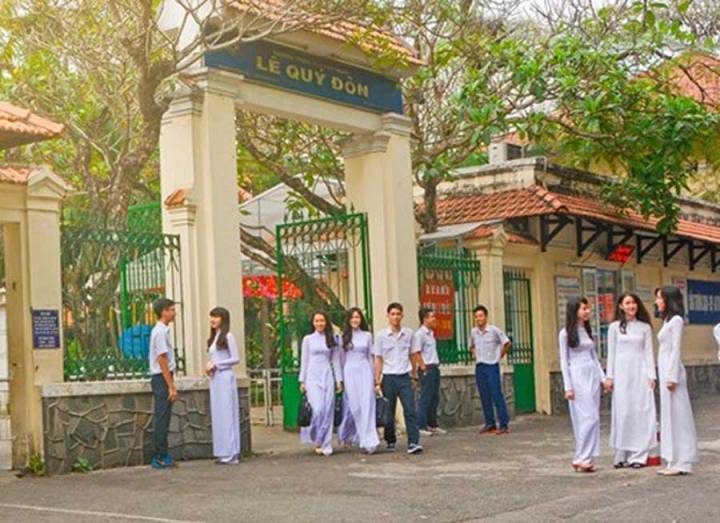

Le Quy Don High School
The school was built opposite Ho Chi Minh City’s Reunification Palace and became the first public high school in Saigon. By 1967, the school was returned to the Vietnamese and became the Le Quy Don education center. Today, the original architecture of the school is almost intact, although it has been repaired.
Nguyen Thi Minh Khai High School (101 years old)
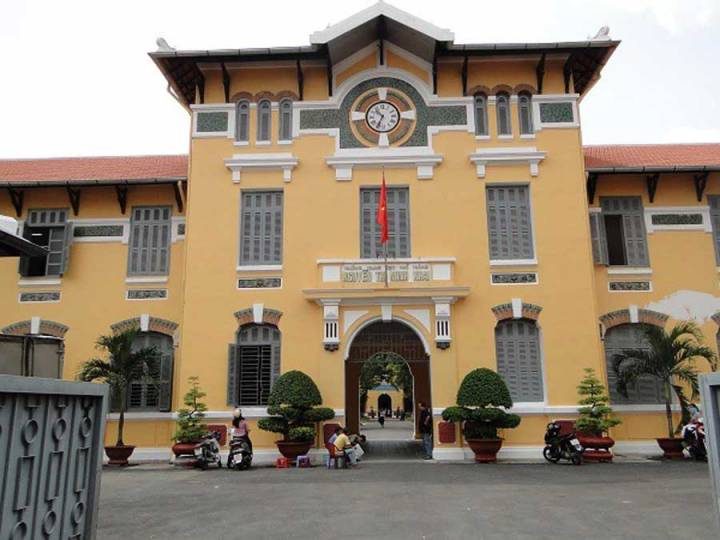

Nguyen Thi Minh Khai High School
When it was founded in 1915, the school was named ‘Purple Girls’ because it was a girls’ school and the uniform was purple. In 1922, the school was officially named Collège Gia Long, then Lycée Gia Long, then the Gia Long High School
When it was founded in 1915, the school was named ‘Purple Girls’ because it was a girls’ school and the uniform was purple. In 1922, the school was officially named Collège Gia Long, then Lycée Gia Long, then the Gia Long High School
When it was founded in 1915, the school was named ‘Purple Girls’ because it was a girls’ school and the uniform was purple. In 1922, the school was officially named Collège Gia Long, then Lycée Gia Long, then the Gia Long High School for Girls in 1953. After April 30, 1975, the school was renamed to the Prussian School Level 2-3 Nguyen Thi Minh Khai. The 1978-97 school year, the Secondary School for Girls and Boys was renamed Nguyen Thi Minh Khai High School and is now one of the flagships of education.
Le Hong Phong High School (89 years old)
Founded in 1927, the school was named after the prominent Vietnamese scientist named Lycée Petrus Truong Vinh Ky. In 1990, the school was renamed Le Hong Phong High School.
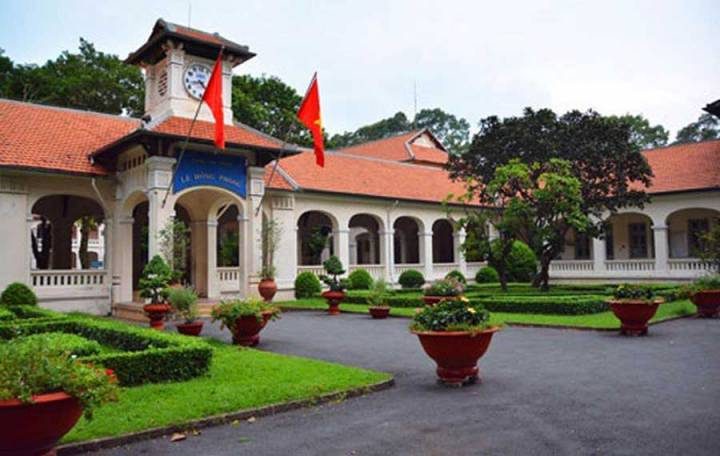

Le Hong Phong High School
With the classic French architecture, Le Hong Phong School is the pride of many generations of students not only by beautiful architecture but also the place to train many talents for the country, where many patriotic movements took place. During the resistance war against French and American.
Hanoi area
Hanoi Medical University (114 years old)
In 1902, Indochina Medical University in Hanoi was officially established. The first principal of the school was a well-known physician in the world and very familiar with Vietnam: Dr. Yersin. From 1902 until 1945, the principals were all French and the school was run by the University of Paris, the language of instruction was French. After the revolution, on November 15, 1945, the University of Medicine and Pharmacy of Vietnam opened its first school year under the administration of the Democratic Republic of Vietnam. In 1961, the University split into two schools of Hanoi Pharmacy and Hanoi Medical University.
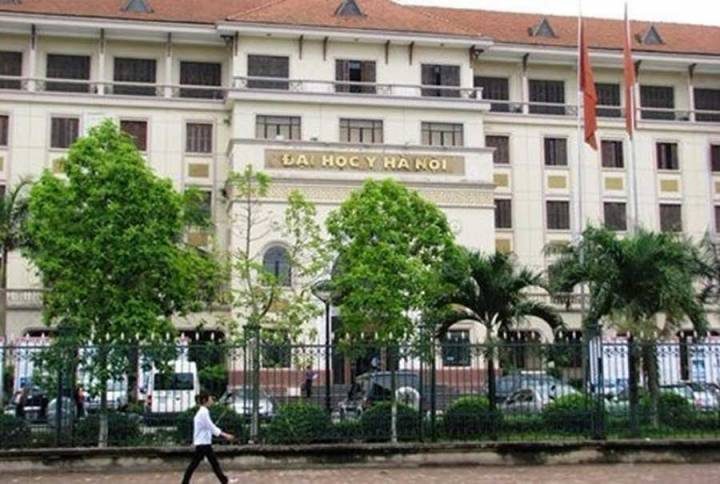

Hanoi Medical University
In the process of existence and development, the school has trained generations of doctors who have made outstanding contributions to Vietnamese medicine such as Vu Dinh Tung, Ton That Tung, Hoang Dinh Cau, Pham Ngoc Thach and Dang Van. The achievements in the fields of cardiology, malaria, liver surgery … associated with the names of professors Ton That Tung, Dang Van Ngu, Dang Van Chung … It has made the world to know to the medicine of Vietnam.
Hanoi National University (110 years old)
In 1906, Governor General Indochina Paul Beau decided to set up the Université Indochinoise. In 1907, Indochina University officially opened the first course. This is the first institution of higher education in Vietnam in particular and the Federation of Indochina in general at that time. Immediately after the opening of the first course, in which the school encouraged the patriotic movement in 1908-1909, the French had cut off the budget and halted its operation for nine years. The school only came back when Albert Sarraut made Indochina Governor General in 1917.
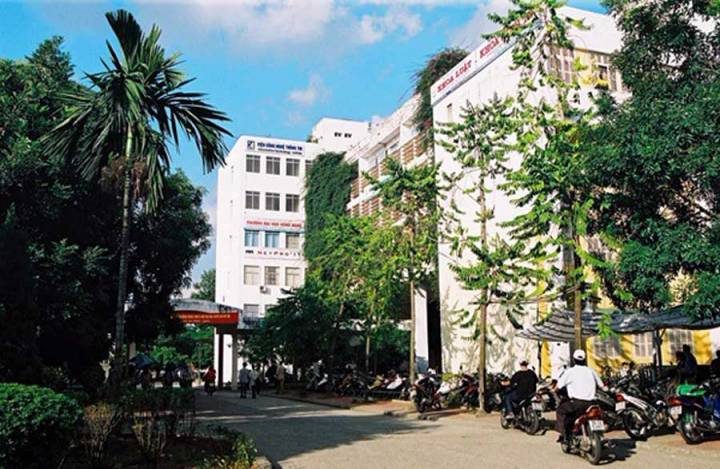

Hanoi National University
After seizing power from the French, on November 15, 1945, President Ho Chi Minh signed the decision to re-open the University of Indochina and renamed Vietnam National University. In 1956, the University was renamed to the General University and since 1993 it has been named Hanoi National University. Today, Hanoi National University is playing an important role in educating the knowledge-building class of the country in the new century with the leading education system in Vietnam.
Viet Duc High School (119 years old)
Officially established in 1955, but perhaps the history of the Viet Duc school dates back to 1897, with the birth of a school called Puginier. After the liberation of the capital (10/10/1954), the school was named Secondary School Level 2 – 3 Hanoi. By 1970, it was divided into two schools, namely Viet Duc High School (morning classes) and Ly Thuong Kiet High School (afternoon classes). In 1977, two schools on the merger of high school today.
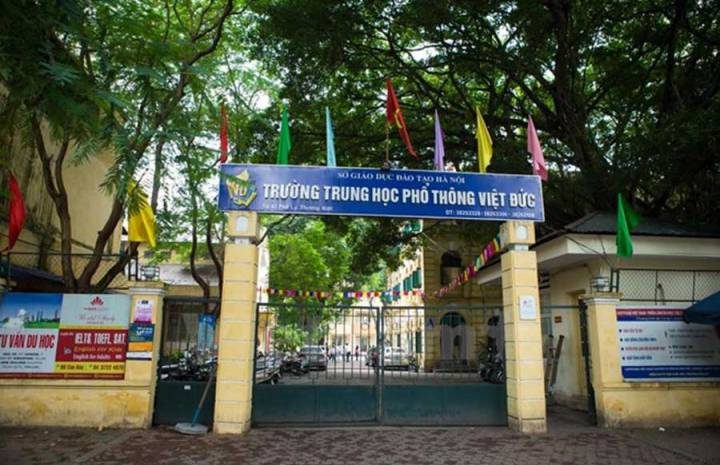

Viet Duc High School
At this time, Viet Duc is always at the top of the excellent schools of Hanoi capital. This is also the place where many famous people are trained such as Chairman Nguyen Sinh Hung, Deputy Prime Minister Pham Gia Khiem, Professor Ton Do Bach, Doctor Tran Tien, Poet Luu Quang Vu.
Chu Van An High School (108 years old)
There is one high school in Hanoi with a long tradition such as Chu Van An High School. The school, founded by the French in 1908 (106 years old). Initially, the school was named the Secondary School of Protection, but the Hanoi people often called it Pomelo School because it is located in the Pomelo region and also expressed the patriotism of the students at that time. Although set up to train staff for the ruling apparatus, many of the school’s students became elite revolutionaries. General Vo Nguyen Giap has also taught here.
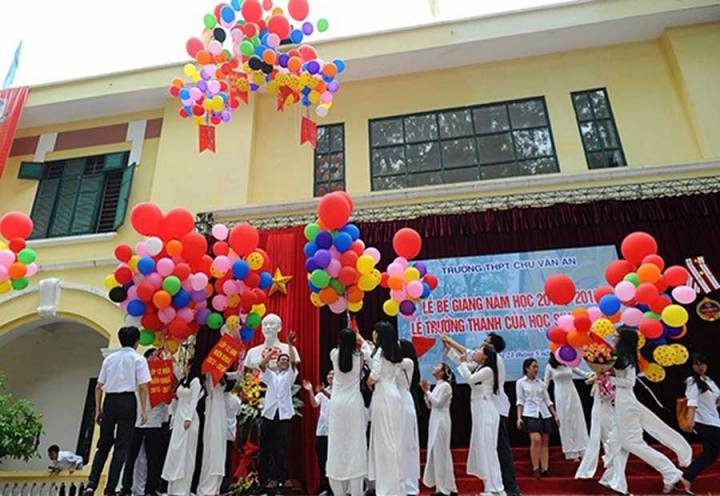

Chu Van An High School
By 1945, the school was renamed Chu Van An – a famous professor in the Tran dynasty. At present, Chu Van An High School is located at No.10 Thuy Khue Street, right next to West Lake and still preserving the unique architecture from the French time.
Tran Phu High School (97 years old)
The predecessor of Tran Phu High School is the two high schools Lycée and Petit Lycée, founded in 1919. After many renamed, split, merged, in 1995, the school was named Tran Phu High School and by 2009, Changed to Tran Phu – Hoan Kiem High School to distinguish it from a school of the same name in the old Ha Tay area. This is also the school was attended by many celebrities such as General Secretary Truong Chinh, Professor Ho Dac Di …
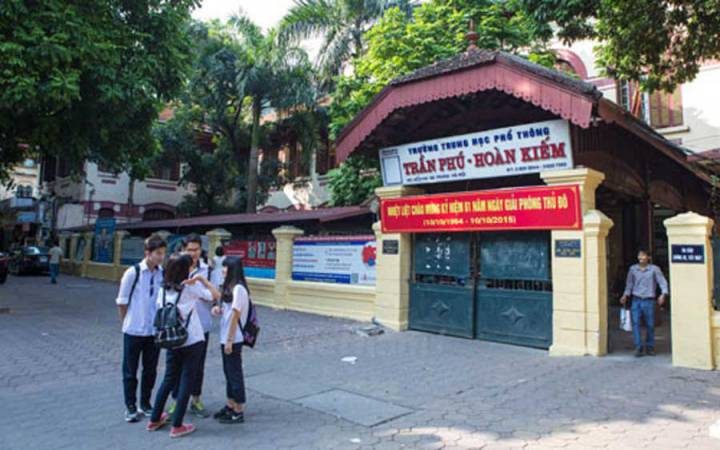

Tran Phu High School
Like Chu Van An High School or Phan Dinh Phung High School, this school is always shady and special, retaining the ancient architecture that is hard to find today in high schools in the city.
Phan Dinh Phung High School (93 years old)
Phan Dinh Phung High School was established in 1923 with the initial name of the École Normale Supérieur Do Huu Vi – the first pilot of Indochina.
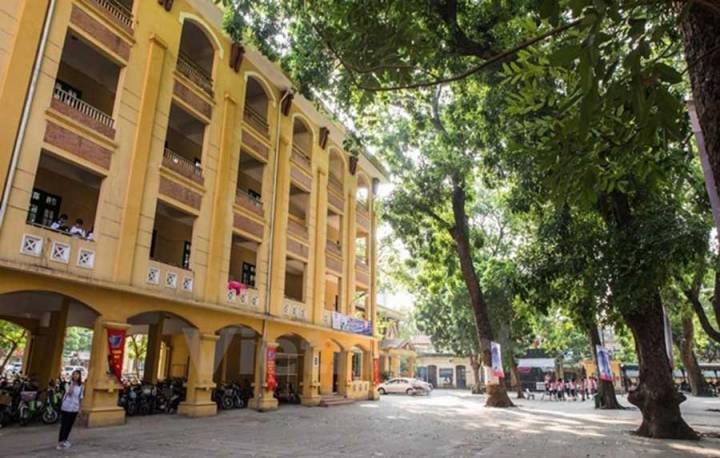

Phan Dinh Phung High School
During the French colonial era, the school’s name was comparable to other famous high schools such as Buoi School, Dong Khanh School. Currently, the school still remains stature as one of the top high schools of Hanoi with the highest enrollment points in the city.
Hue city
National High School, Hue (120 years old)
The Quoc Hoc School (commonly known as Quoc Hoc or Quoc Hoc – Hue, today officially known as the Quoc Hoc High School) is a famous school in Hue. This is where President Ho Chi Minh, General Vo Nguyen Giap, President Ngo Dinh Diem and many other famous leaders attended.
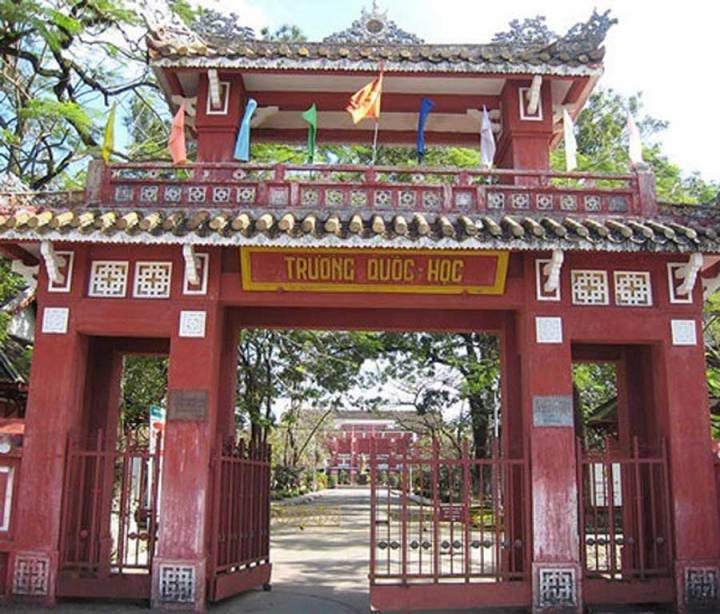

National High School, Hue
In 1896, the school was established under the instruction of King Thanh Thai and signed by the Governor of Indochina. At the beginning, the school was named “France National Academic School”, then named École Primaire Supérieure, Khai Dinh, Ngo Dinh Diem and returned to its original name in 1956. In the beginning, The study was built in the old style, the mud wall with a total of three buildings. By the early 20th century, the school was rebuilt in French architecture.
Hai Ba Trung High School, Hue (99 years old)
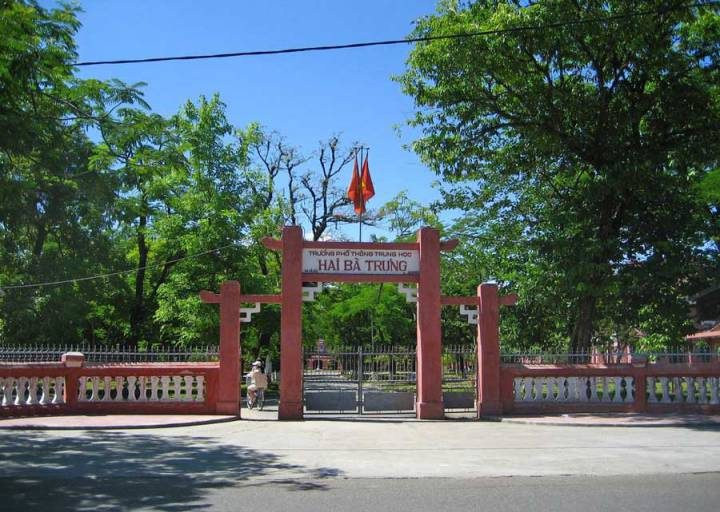

Hai Ba Trung High School
Hai Ba Trung High School is the second oldest school in Hue after the Quoc Hoc. The school was founded in 1917. During the ceremony, the first stone to be built was attended by King Khai Dinh. Initially, the school was named Dong Khanh, the first school for girls in all 13 provinces of Central Vietnam at that time. When the country was unified, the school was named Trung Trac high school. In 1981, the school was renamed Hai Ba Trung High School and this name is used to this day.
Other provinces
Nguyen Dinh Chieu High School, My Tho (137 years old)
In March 1879, under the permission of the governor of Nam Ky Le Myre De Vilers, My Tho Province was authorized to establish a secondary school named ‘Collège de My Tho’.
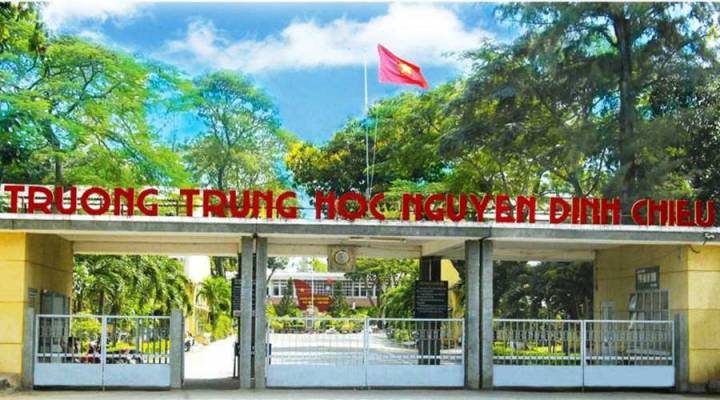

Chau Van Liem High School, Can Tho (97 years old)
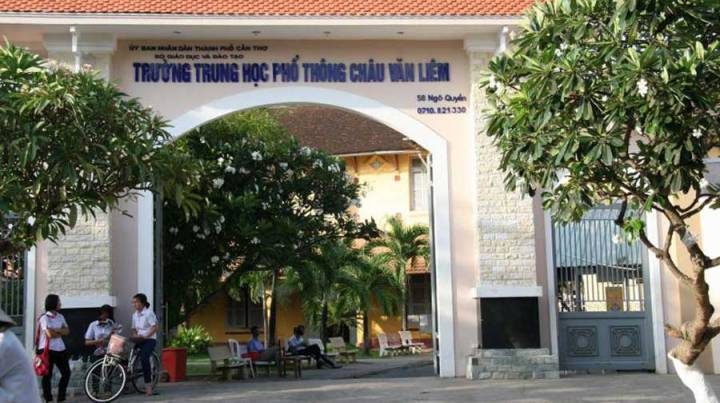

Chau Van Liem High School
Prior to April 30, 1975, the school changed its name several times (4 renamed): Collège de Can Tho, Phan Thanh Gian Secondary School, An Cu 1 Secondary School, Can Tho High School. By 1985, the school was named martyrs Chau Van Liem. At present, Chau Van Liem High School has been recognized as national standard and is the only high school in Can Tho province to apply the program of two sessions.
Ngo Quyen High School, Hai Phong (96 years old)
In the history of development, Ngo Quyen High School has been renamed 3 times. French Period, the school name is Bonnal. After the August Revolution in 1945, the school was renamed Binh Chuan. In 1948, the school was named the national hero of Ngo Quyen and kept until now. This is the oldest school in Hai Phong, bearing bold French architecture.
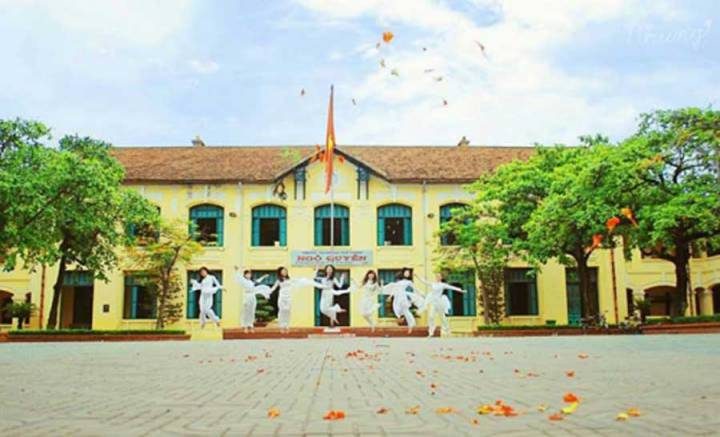

Ngo Quyen High School
Famous people who have studied at this school are Nguyen Van Linh (former General Secretary of the Communist Party of Vietnam, who initiated the renovation of the country), musician Do Nhuan, poet The Lu, writer Nguyen Huy Tuong …
You are reading the article “Traveling Around Vietnam, Visiting The ” Oldest” Schools” in the Real Estate category at realestatevietnam.com.vn. Any information sharing, feedback please email to contact.vietnamrealestate@gmail.com, Hotline (+84) 898 898 688 (24/7).
Special thanks!


